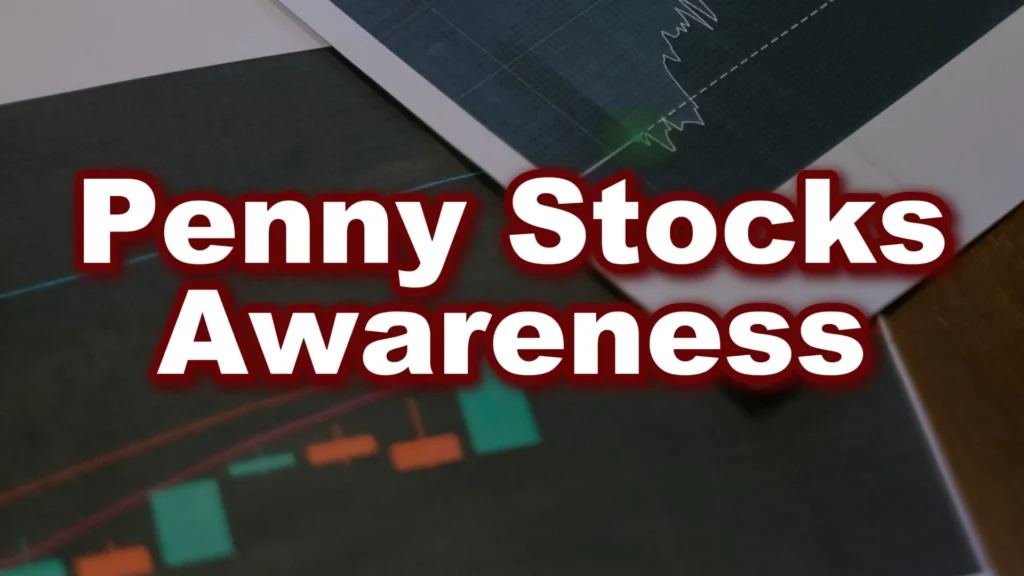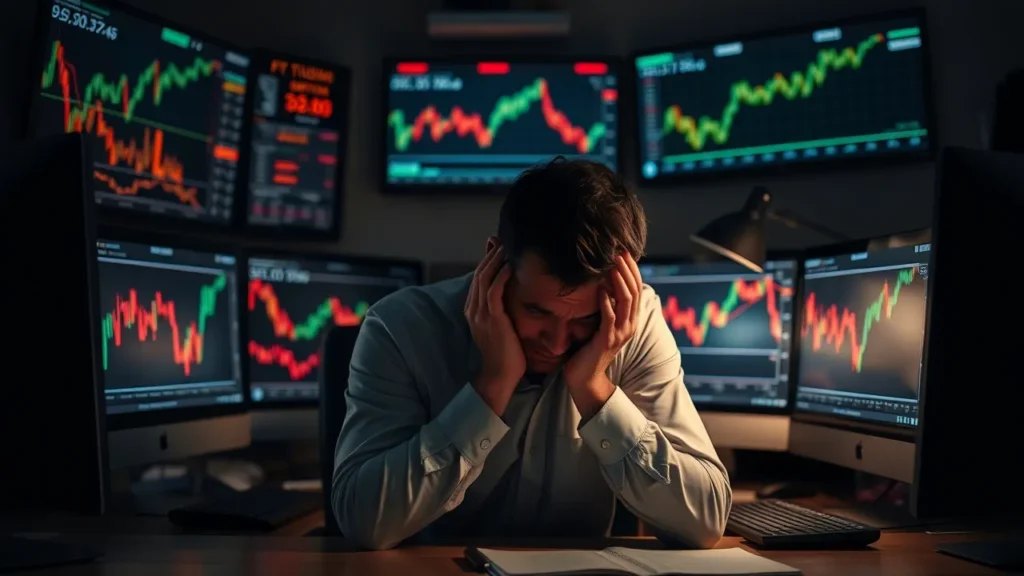Most beginners in the market do not lose money because of poor research. They lose because of emotions. Fear and greed run the show when money is on the line. These emotions can push you into fast trades, missed chances, and painful losses.
You may think you will act calmly when investing. The truth is different. When prices move fast, emotions take control. If you are not ready, fear and greed will lead your choices instead of facts. This article will show you how it happens and how to protect yourself.
Fear makes you sell when you should hold. Greed makes you buy when you should wait. Both push you away from smart decisions. You cannot escape these emotions. But you can learn how they trick you.
Here is the reason to care. Every investor feels the same emotions, but only skilled investors manage them. If you want to last in the market, you must train yourself early. This is not theory. It is survival.
You will see why beginners fall into traps again and again. You will learn what fear and greed do to your money. You will also learn how to break free. Each part of this guide builds toward the steps you can take today.
How Fear Steals Your Gains
Fear is the strongest force that blocks beginner investors from success. It shows up in ways that feel safe but cause harm. The market moves up and down every day, but beginners treat every move as a threat. This reaction turns normal swings into painful decisions.
One of the first traps is selling too soon. You buy a stock at $50, and it climbs to $55. Instead of letting it grow, you rush to sell because you fear it will drop back to $50. The stock then rises to $70, and you are left with regret.
Fear makes you lock in small profits while giving away bigger ones. Beginners convince themselves they are being smart by “taking gains.” In truth, the gain is not based on strategy. It is based on emotion.
Another form of fear is panic selling. Prices fall fast, and you feel pressure to act. You sell in a rush without checking the bigger trend. When the price bounces back, you realize you sold at the worst point.
The damage from panic selling is worse than it looks. It does not only cost money. It also builds doubt in your own ability. The next time the market falls, the memory of past losses makes you repeat the same move.
Fear also causes hesitation. Many beginners sit with cash waiting for the perfect entry. They think they must buy at the lowest price. But markets do not give perfect signals, so they wait forever.
By waiting, beginners miss growth that was within reach. While they hesitate, prices climb higher. Watching others profit while staying on the sideline creates frustration. This frustration can turn into rushed trades later, which makes losses more likely.
Another hidden cost of fear is lost time. Money can recover, but time does not. Each year you sit out is a year without growth. The compounding you miss is more damaging than a single bad trade.
Fear can also push you into constant second-guessing. You buy, then doubt yourself right away. You check the price every hour. Every drop feels like a disaster. Instead of letting your plan work, you cut trades short because of nerves.
This pattern drains energy and confidence. Instead of building skill, you build stress. Investing feels unsafe when fear rules every move. Many beginners walk away, thinking markets are not for them.
But the truth is different. The market did not cause the failure. Fear did. Acting too fast or not at all kills gains before they can grow. That is why controlling fear is the first step toward becoming a strong investor.
How Greed Blinds Your Judgment
Greed is the twin of fear, and it damages beginners in a different way. Instead of making you freeze or sell too soon, greed pushes you to chase too far. It gives a false sense of power when markets rise. That feeling of excitement makes beginners take bigger risks without thinking.
One clear sign of greed is chasing a stock that has already gone up a lot. You see it rise fast, and you feel pressure to get in before it climbs higher. The rush of “not missing out” takes control. The problem is that many times you enter right near the top.
When the price drops back, the pain is sharp. You realize you bought after the move was nearly finished. The loss feels unfair because you entered with so much excitement. But in truth, greed created the setup for that loss.
Greed also blinds you when you are in profit. You see gains on the screen and refuse to sell because you want more. Every extra dollar feels possible if you just hold on. The danger is that prices can reverse without warning.
When they do, all your gains vanish. A stock that was up 20% for you can fall back to break-even or worse. What once felt like smart patience now feels like regret. This cycle repeats for many beginners who never lock in profits.
Another form of greed is overloading risk. Beginners may put most of their money into one stock. They may buy without limits, hoping for fast growth. Some remove all safety measures, believing a big win is certain.
This is dangerous because no stock is safe from sudden drops. A single bad headline or weak earnings can cut the price in half. If too much of your money is in that one trade, the damage is huge. Months of progress can be wiped out in a single day.
Greed also makes you believe rules do not apply to you. Beginners watch others warn about risk but assume they will be the exception. The dream of fast riches pushes them to ignore the basics. Only when the loss arrives do they see how exposed they were.
The hardest part about greed is that it feels good in the moment. Fear feels heavy and stressful, but greed feels exciting. That is why it blinds beginners so easily. By the time the damage is clear, it is too late to fix.
The real trap is not just losing money. It is losing trust in yourself. When greed leads to big losses, beginners question every future move. This lack of trust can ruin confidence and make recovery slower.
The truth is simple: greed is not a sign of ambition. It is a signal that you are trading emotions, not a plan. Without control, greed will keep you chasing highs and giving back gains. To grow as an investor, you must learn to spot greed before it takes control.
Learning to Control Both
Fear and greed will always be part of investing. You cannot erase them, but you can manage them. Beginners who master this skill early save money and time. Those who ignore it face losses that could have been avoided.
The first step is to build clear rules before you place a trade. Decide how much money you are willing to risk. Pick a point where you will sell for profit. Set a line where you will cut losses. These choices protect you when emotions run high.
Rules matter because they act as a guard. Without rules, you act on feelings in the moment. Feelings change every minute when markets move. Rules stay firm no matter what the chart shows.
Start by deciding how much of your account to risk on one trade. Many pros risk only a small percent each time. This keeps one mistake from wiping out all progress. Beginners who risk too much in one trade give emotions more power over them.
Next, plan your exit before you buy. If your target profit is 15%, write it down. If your loss limit is 5%, write that too. This removes guesswork when prices move. You know what to do without asking your emotions for advice.
Writing your plan is powerful. Record why you bought the stock, what you expect, and your exit points. When fear or greed starts to whisper, you can read your plan. This gives you clarity in moments when your mind feels clouded.
Tracking your trades also builds skill over time. When you look back, you see where fear made you sell too soon or greed made you hold too long. Each note teaches you something about your own behavior. This self-awareness is what separates beginners from pros.
Discipline comes from repeating your rules until they feel natural. At first, you may want to break them. But the more you follow them, the more confident you become. Discipline grows stronger with practice.
Do not depend on your gut feelings. Your gut is driven by fear and greed. A system built on rules is steady and reliable. Trusting your system makes it easier to stay calm when markets swing.
Pros are not free of fear or greed. They still feel both every day. The difference is that they do not act on those feelings. They let their system make the call. This is the skill you must build if you want to last in the market.
The climax is clear: you cannot kill fear or greed, but you can control them. The payoff is freedom from emotional mistakes. With rules, tracking, and discipline, you protect yourself from the traps that ruin most beginners. This is how you step closer to trading with confidence.
Now you see why beginners lose. It is not the market. It is fear and greed controlling actions. If you let them run free, you will keep making the same mistakes.
The good news is you can change. Build a plan. Keep risk small. Train yourself to act with rules, not emotions. Review your trades and learn from each one.
Fear will test you. Greed will tempt you. But with control, you turn them from enemies into signals. Fear can warn you of risk. Greed can remind you not to get carried away. Together, they can sharpen your judgment if you stay disciplined.
The market rewards those who learn this lesson early. Now you have the insight. The next step is action. Train your mind, set your rules, and protect your money. This is how you grow from a beginner into a confident investor.




